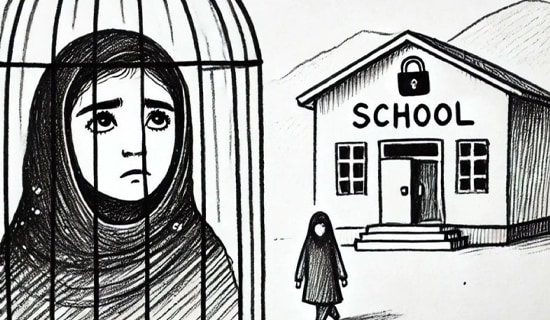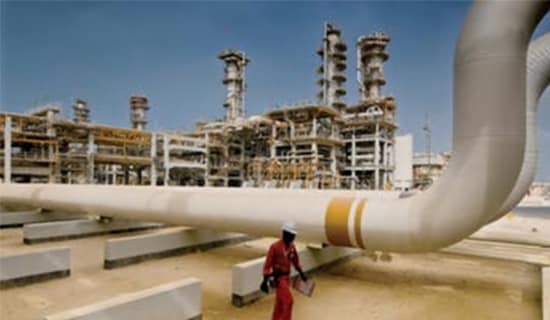Introduction
In recent weeks, tensions in the intra-Lebanese political arena have escalated to the point of a possible confrontation between Free Patriotic Movement leader Michel Aoun and the Al-Mustaqbal stream; this confrontation is expected to involve the pro-Aoun Christian community. The confrontation is the result of Aoun's calls to protest against what he calls the damage done to the rights of the Christian community by the Sunni representatives of the Al-Mustaqbal stream. Aoun even raised the possibility of regime change in Lebanon if his demands were rejected.
This current crisis revolves around several issues, including the appointment of a president, the appointment of a commander-in-chief for the army, the passage of a new election law, and more. The debate on the appointment of a commander-in-chief for the army prompted Aoun to take steps that brought government work to a standstill. In response, Lebanese Prime Minister Tammam Salam convened the cabinet and made decisions via majority, instead of the customary unanimous consensus as customary, thus exacerbating the conflict.
This report will review the background to the crisis, Aoun's demands and threats, and the positions of his allies in the March 8 Forces camp.
Aoun Works To Thwart Government Activity Because Of The Refusal To Appoint Him President And His Son-In-Law Army Commander-In-Chief
The current crisis centers around disagreements on two issues between Michel Aoun and the March 14 Forces led by the Al-Mustaqbal stream: the appointment of a new Lebanese president, who under Lebanon's constitution must be a Christian, and the appointment of a new army commander-in-chief, who, according to custom, is also a Christian.
For over a year, Lebanon has been without a functioning president, after the country's two large camps - the March 14 Forces, led by the Al-Mustaqbal stream, and the March 8 Forces, led by Hizbullah - were unable to agree on a candidate. Aoun devoted lengthy efforts in dialogue with the March 14 Forces, specifically the Al-Mustaqbal stream and the Lebanese Forces Party led by Samir Geagea, in order to obtain their agreement to appoint him president, but was unsuccessful.
The second disagreement focuses on whether to extend the term of current Lebanese army commander-in-chief Jean Kahwaji, or to appoint a new commander-in-chief. The government had leaned towards extending Kahwaji's term, which is set to end in September 2015, but Aoun is opposed in principle to extensions of the terms of public officials, and instead is demanding the appointment of his son-in-law, Chamel Roukoz, who currently commands the Lebanese Commando Regiment.[1]
Apparently, once Aoun realized that his efforts to get Roukoz appointed would also fail, he decided to launch a direct struggle within the government. About a month ago, Aoun announced that he would allow no resolutions to pass in the government as long as the matter of appointing a commander-in-chief, as well as other military and security functionaries, remained open. In effect, Aoun exploited the procedure established shortly after the May 2014 expiration of the term of Lebanese president Michel Suleiman, when Prime Minister Salam agreed that all resolutions would be passed unanimously because in the absence of a president, the government assumed presidential duties. Aoun, who said that his ministers would not vote on any resolution that the government sought to pass, has essentially paralyzed government activity.
Following a three-week period in which the government did not convene because of Aoun's actions, Prime Minister Salam decided to reject Aoun's demands. Last week, he convened a government meeting whose agenda did not include a discussion of security appointments, including commander-in-chief. Salam did allow Aoun's government representatives to express their opinion on the appointments at the meeting, but immediately afterwards he brought up a resolution regarding the funding of marine transport for agricultural produce. The resolution passed by majority vote, despite the opposition of Aoun's ministers as well as Hizbullah's ministers (five of the 24 members) - not unanimously, as has been customary in the past year because of the absence of a president.
Aoun To Christians: Fight To The End, Even At The Cost Of A Christian-Muslim Conflagration And Division Of The Country
Prime Minister Salam's decision to pass government resolutions with a regular majority instead of unanimously infuriated Aoun, galvanizing him to call on Lebanon's Christian community to take to the streets, without giving details about what form the protest would take.
Aoun claimed that Salam and the Sunni Al-Mustaqbal stream to which Salam belongs are appropriating the authority of the president, currently in the hands of the government ministers, for themselves. He called this a grave attack on the rights of Lebanon's Christians, since according to the sectarian patronage system set by the Taif Agreement, the president should be a Maronite Christian.
On July 3, 2015, Aoun called on Christian community to protest the marginalization of Christian rights in Lebanon. He said: "What happened in the government [i.e. the passing of resolutions with a regular majority] and what could happen [in its session next week] requires us to act forcefully. Our honor is greater than the crisis. We should take to the streets and call on the Lebanese, specifically the Christians, to take to the streets with us." He continued: "Today, there is an attempted takeover of Lebanon's Christian roles... Christians are facing an existential threat, because the wily Lebanese politicians have taken over all Christian rights and roles... Our sin as Christians is that we live in peace with everyone while the Muslims can't [even] live in peace with each other."[2]
Several days later, Aoun escalated his threats, saying that he was willing to "fight this to the end" even if "the state splits." He added: "I am a son of the homeland, not a son of [this] regime. The country is the homeland and the institutions, but the regime merely administers the institutions according to agreements made within the people that are embodied by the constitution and laws. What is happening today is a direct assault on the country, a violation of the constitution, and a disregard for the laws. That is why I am not a son of the [current] regime."[3]
On July 7, Lebanese Foreign Minister Gebran Bassil, who is another of Aoun's sons-in-law, reiterated Aoun's statements to the Lebanese daily Al-Akhbar, and warned that action would not be limited to shutting down roads and protesting, but would include a demand to examine how well state institutions are adhering to the constitution. He said that this was neither a threat nor a choice, but that "we [Christians] are forced to do this because it concerns our existence and honor."
Bassil added: "We are willing to dismantle the regime because it neglects us," and that transferring the authority of the president to the prime minister "is a matter of life and death for us." According to him, "there are mistaken estimates regarding the importance of the role of Lebanon's Christians, which could lead the country to a larger conflagration that would not be only Sunni-Shi'ite in nature, but also Christian-Muslim."[4]
As noted, Aoun did not mention the nature of the protest action. Various reports indicate that he planned a mass protest of 4,000- 5,000 people outside the government headquarters during its July 9 meeting, as well as protests in other parts of the country.[5] Another report, citing sources in parliament, claims that activists could besiege the Beirut port and airport.[6]
Beginning July 8, Aoun began sending messages via social media and mobile phones telling his supporters where to convene, with the goal of conducting peaceful protests outside the government headquarters during its upcoming meeting.[7]

Facebook post by Aoun calling on activists to convene and head to Beirut: "The [Free Patriotic Movement] youth will meet tomorrow [July 8] at 6 PM on Mirna Al-Chalouhi [highway] and lead a procession of vehicles into the capital of Beirut" (Source: Facebook.com/FPMyouth?_rd=p, July 7, 2015)

Aoun Facebook post: "All supporters are asked to head to the government headquarters" (Source: Facebook.com/FPMyouth, July 9, 2015)
Hizbullah, Other Aoun Allies In March 8 Forces Camp Express Qualified Support
Most of Aoun's political allies in the March 8 Forces camp did not hasten to align themselves with him. Lebanese parliament speaker and Amal Movement head Nabih Berri supported in principle Aoun's demands to grant Christians their rights in principle - though this may have been mere lip-service - but opposed his attempts to paralyze the government. According to Berri, this could paralyze the entire country, especially in light of the fact that there is no president, and that parliament does not convene due to its being boycotted by several parties, including Aoun's own.
Aoun's Christian allies, Suleiman Frangieh, leader of the Marada Movement, and the Al-Tashnag Party, also oppose his acting against the government and his calls to the Christian community.
On the other hand, Hizbullah announced its support for Aoun's position, but did not explicitly state whether this support would include actual protests. Additionally, Hizbullah is trying to persuade Salam to avoid passing government resolutions with a regular majority instead of unanimously. The movement sent one of its ministers, Muhammad Fanish, to ask Salam to wait until after the signing of a nuclear agreement with Iran, because this would produce a breakthrough in regional matters, including the Lebanese presidency, parliament, and government.[8]
A report in the daily Al-Akhbar noted, citing various sources in the Al-Mustaqbal stream, that Saudi Arabia was responsible for Salam's decision to clash with Aoun to the very end.
Thus far, Aoun's political opponents have merely expressed criticism of his call for protests, and is not issuing counter threats - except for one instance. Former MP Fares Soueid, coordinator of the March 14 Forces General Secretariat, warned that any road blocked in Jbeil, where he lives, would be opened.[9]
* E.B. Picali is a Research Fellow at MEMRI; H. Varulkar is Director of Research at MEMRI.
[1] It should be mentioned that despite Aoun's objection in principle to extending the terms of public and military officials, claiming that such a move is undemocratic, his own party continued to serve in parliament after parliament had extended its own term twice. It should also be noted that Lebanon's political elements do not question Roukoz's qualifications, and it seems that their opposition stems from his familial ties to Aoun, who is seeking to become president.
[2] Al-Akhbar (Lebanon), July 4, 2015.
[3] Al-Mustaqbal (Lebanon), July 8, 2015.
[4] Al-Akhbar (Lebanon), July 7, 2015.
[5] Al-Mustaqbal (Lebanon), July 7-8, 2015.
[6] Al-Akhbar (Lebanon), July 4, 2015.
[7] Facebook.com/FPMyouth
[8] Al-Akhbar; Al-Mustaqbal (Lebanon), July 8, 2015.
[9] Al-Mustaqbal (Lebanon), July 9, 2015.




